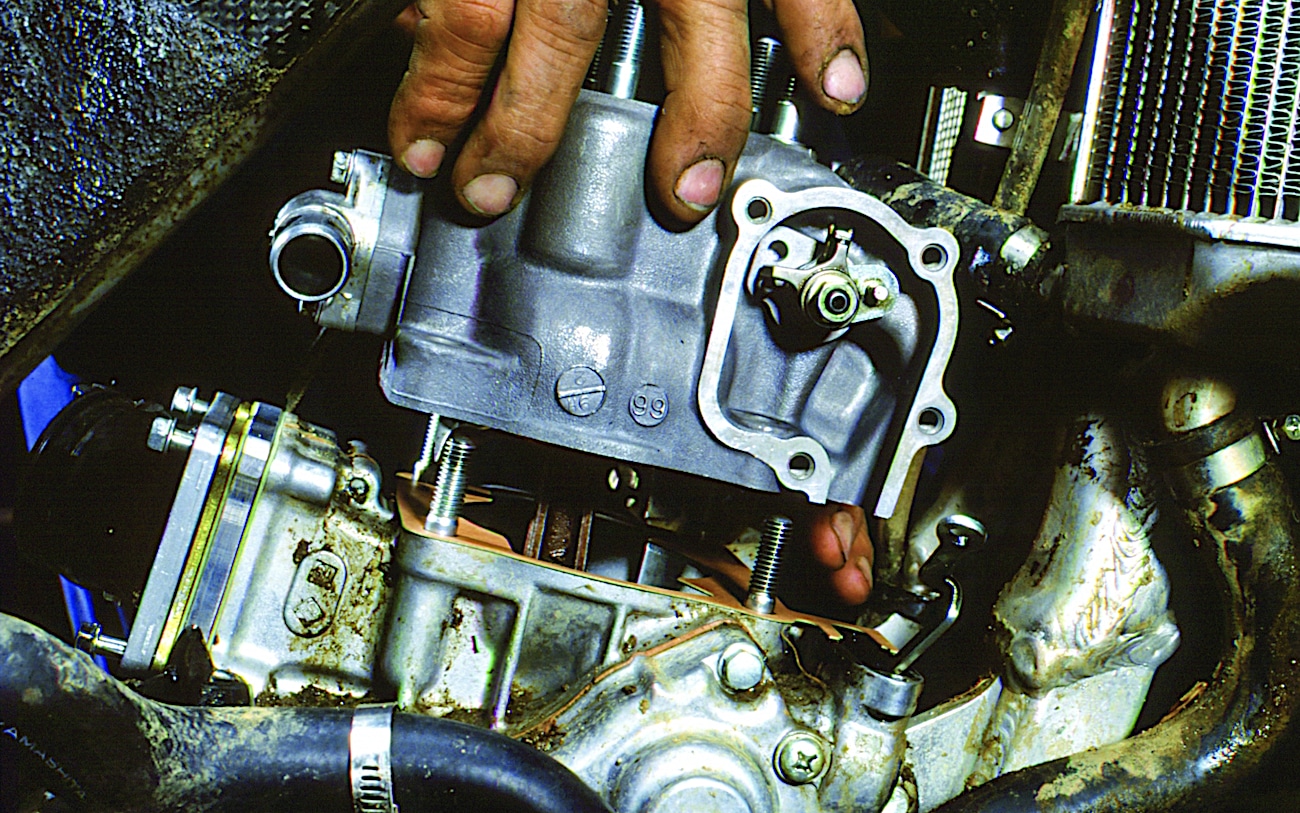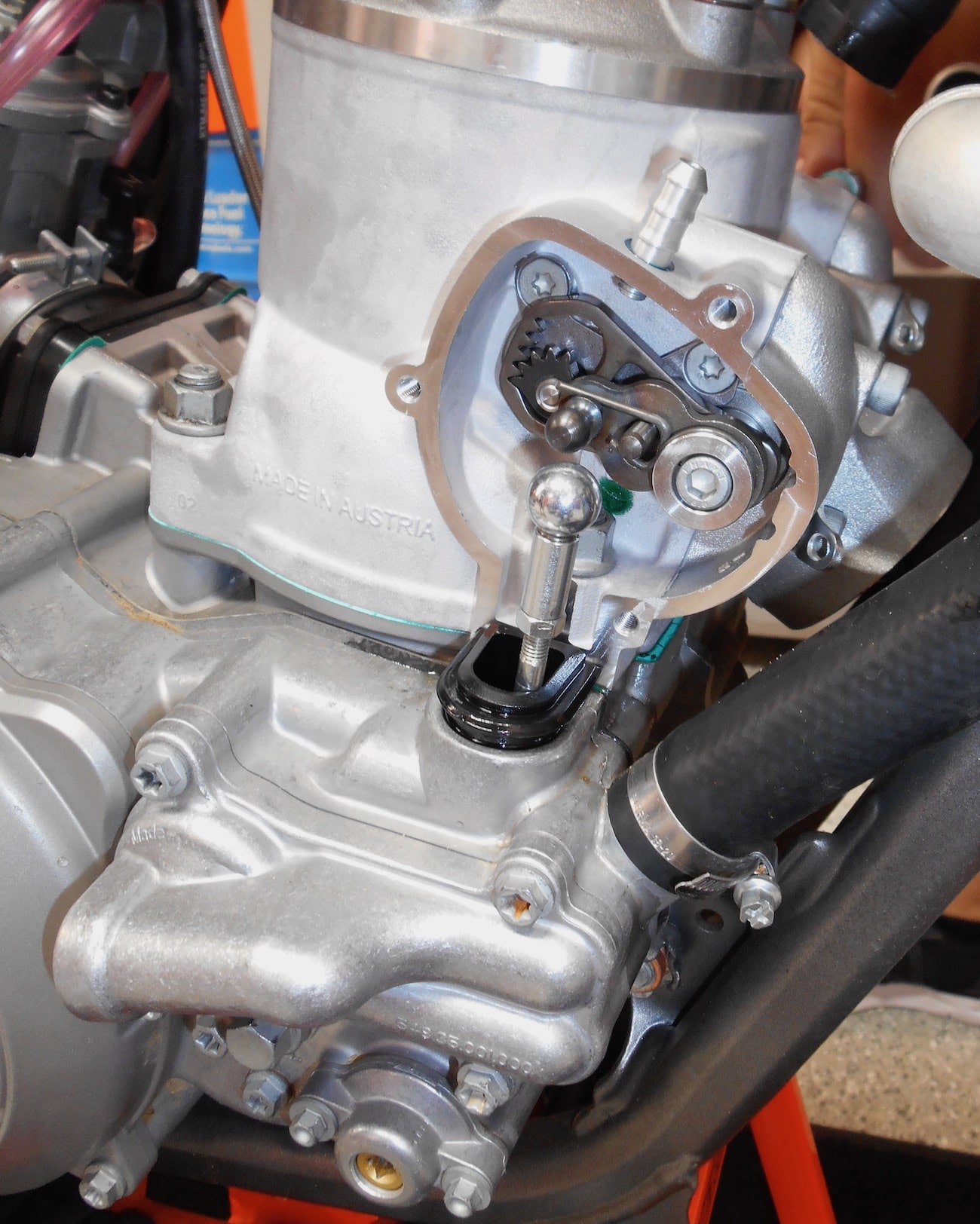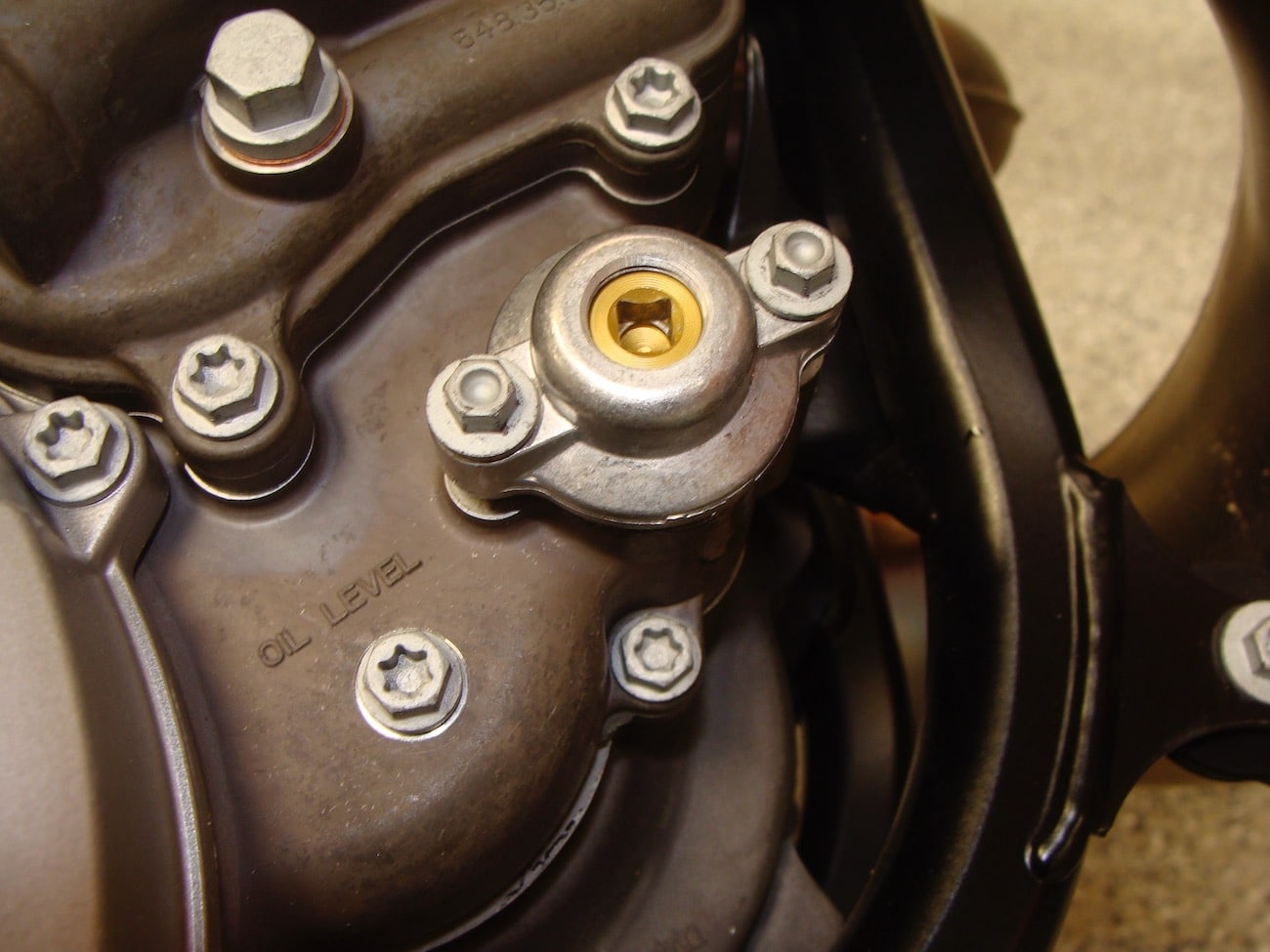MXA TECH SPEC: HOW TWO-STROKE POWER VALVES OPERATE & WHY
(1) Concept. Power valves are found at the exhaust port on all two-stroke engines. They are used to modulate the power of the motorcycle by constantly changing the exhaust timing to work with the engine’s rpm. Four-strokes utilize valves on top of the cylinder that open and close the intake and exhaust ports to neatly allow air and fuel in and out of the combustion chamber; two-strokes don’t have these valves.
(2) Exhaust ports. In layman’s terms, combustion engines use the “suck, squeeze, bang, blow” method to create power. Dirt bikes suck air and fuel into the cylinder, compress it with the piston, light it with a spark, and blow the fumes out the exhaust port and into the exhaust pipe when making power. To adjust the power characteristics of a two-stroke engine, aftermarket tuners and manufacturers raise and lower exhaust ports, creating more top-end power by raising them or making more bottom-end grunt by lowering them.
(3) How it works. Nowadays, power valves are utilized to open and close a two-stroke cylinder’s exhaust port as needed when the engine’s rpm changes. At low rpm, the exhaust port is closed off by the power valve, only allowing small amounts of fumes through. Yamaha uses a cable from a computerized mechanical control unit that detects the ignition frequency and determines the required angle of the valve as needed for the engine. Yamaha’s YPVS system uses a valve that is raised and lowered into the exhaust port at an angle to allow air through the port. KTM uses a spring-loaded valve that rotates to open and close. The KTM valve has a much broader range for modulating power. It begins to open at 5000 rpm and is fully opened at 7500 rpm. A power valve that opens quickly creates a snappy and more aggressive throttle response off the bottom end. A power valve that opens slowly builds power slower and creates more torque with a smoother hit.
(4) History. Before Yamaha created the first power valve for two-strokes in the early 1980s, the window for power was much smaller. Plus, when an engine builder was looking to make horsepower, he would have to give up power somewhere else on the curve, typically on the low end. The innovation of the power valve allowed race bikes to have torque on the bottom and on top by modulating when the power valve opens up. It creates the best of both worlds.
(5) KTM. One thing we like about the Austrian two-strokes is that their power valve is adjustable. KTM, Husky and GasGas two-strokes have a square Robertson wrench bolt in the right side of the engine that can be tightened to preload the power-valve spring, causing it to begin opening later, or loosened to take pressure off the power-valve spring, causing it to start opening sooner. Since the Robertson wrench is such an odd tool, we always exchange the brass power-valve adjuster bolt for Kreft Moto’s Powerdial 3.0 ($65.00). It allows us to adjust the power valve by hand. The Austrian two-strokes also have an auxiliary spring inside of the primary power valve spring that can be swapped on the 250 models. The stock auxiliary spring is yellow, and it can be swapped with a red spring to allow the valve to open quicker or with a green spring to allow the valve to open slower. The 125 and 150 two-strokes don’t come with auxiliary springs because they’re lower in power and need to open quickly to get up to speed.
(6) Yamaha. The YPVS power valve found on Yamaha two-strokes can’t be adjusted externally. Since the 2021 and older-generation Yamaha two-strokes are lower on horsepower than KTMs (the YZ125 makes 33.99 horsepower compared to the 125SX’s 37.52, and the YZ250 has 46.08 horsepower compared to 49.33 for the 250SX), their power valve doesn’t need to be modulated with the same care. The lower horsepower and torque on the YZ models make them easier to ride. In contrast, with the additional power of a KTM comes the need to control that power.









Comments are closed.